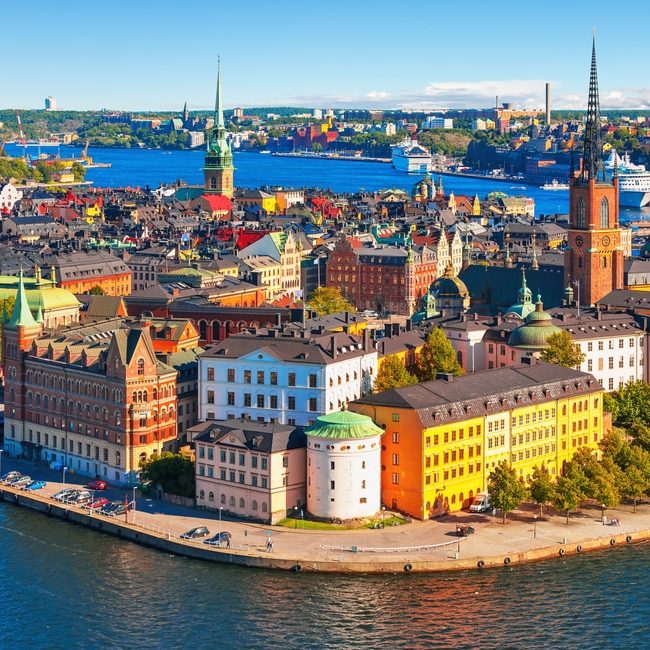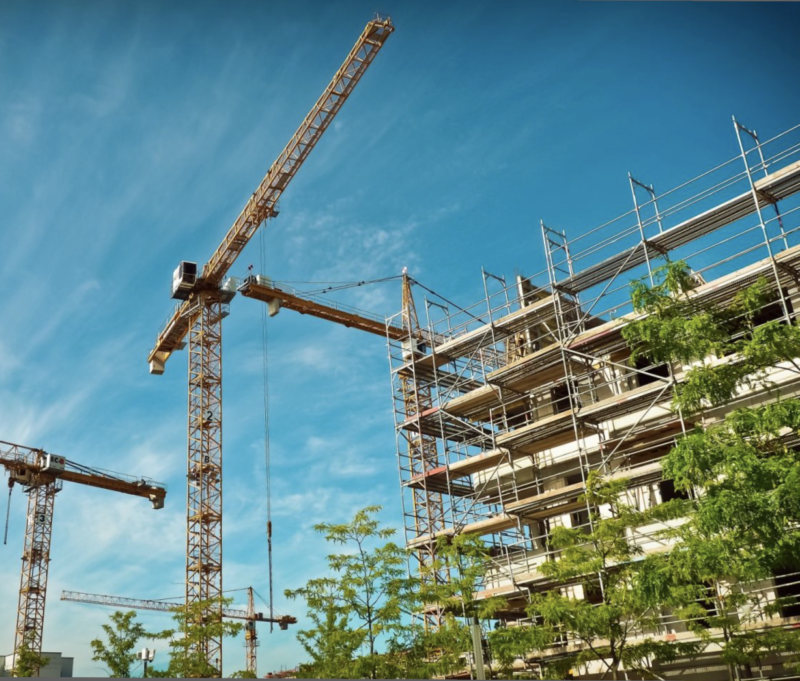For Immediate Release
January 12, 2021
Carbon Neutral Cities Alliance’s Initiative Dramatically Increases Uptake of Bio-based Materials, Advocating City, National and EU-Level Policy Adoption
Today, the Carbon Neutral Cities Alliance (CNCA) announced an ambitious new effort to reduce embodied carbon and increase the uptake of bio-based materials in Europe’s built environment. CNCA’s launch illustrates the cutting edge of decarbonization efforts across Europe’s leading green cities.
CNCA’s initiative – funded by a two million euro grant from the Laudes Foundation – will foster the rapid and widespread adoption of low-carbon building materials and policies across city and national governments in Europe. The project will be implemented in partnership with the World Business Council for Sustainable Development (WBCSD), Eurocities and Bionova.
As part of its three-year campaign, CNCA’s vanguard cities aim to establish this work as a model for other regions around the world. The campaign will support up to 20 cities across Europe – including CNCA member cities Amsterdam, Copenhagen, Glasgow, Hamburg, Helsinki, London, Oslo, and Stockholm – that are ready to adopt ambitious embodied carbon and bio-based material policies and advocate for national-level policy adoption. CNCA will also build a coalition of cities, national governments, and industry that will advocate for EU-level policy adoption.
“Buildings and construction contribute 39 percent of global carbon emissions,” noted CNCA Director Johanna Partin. “The new construction projected to accompany global population growth is equal to building one New York City every month for the next 40 years. If this new construction is built with business-as-usual standards, the embodied carbon generated from it will equal more than six years worth of global fuel combustion emissions. If we want to mitigate further climate breakdown, dramatic embodied carbon reduction and increased use of bio-based materials will be essential in this fight.”
Current projects to address embodied carbon and emissions-heavy building materials are focused primarily on materials research/development and methodologies for measuring and reporting on embodied emissions. To make a significant dent in reducing emissions from building materials, however, the adoption of smart policies for regulating them at the local, national and EU levels will be required.

“The greenhouse gas emissions from buildings in Stockholm are very low thanks to the district heating system using mainly renewable energy,” said Stockholm Mayor Anna König Jerlmyr. “We now turn to the embodied carbon in building material, and we have for several years developed ways to calculate that. The next step is to set actual requirements for use in our city development projects, which would put pressure on the developers to use more climate-friendly building material. Using wood as building material is one important way forward.”
“For climate goals to be met, local, national and European policymakers need to adopt policies that reduce embodied carbon in construction to incentivise the adoption of low-carbon building materials like wood,” said Leslie Johnston, CEO, Laudes Foundation. “Laudes Foundation is thrilled to play a critical role in catalysing this important agenda through its partnership with the Carbon Neutral Cities Alliance’s coalition of public-sector representatives from key European cities.”
“By 2050 Amsterdam is a thriving city where everyone can prosper, while respecting the earth and the boundaries of our planet,” said Amsterdam Deputy Mayor Marieke van Doorninck. “By that time, our city will run completely on sustainable energy and we will have reduced our local emissions to zero and will have a fully circular economy. Our current consumption levels are depleting raw materials and causing significant CO2 emissions elsewhere. If we want nature and greenery to recover, we need to rethink the way we produce and consume. That means taking embodied carbon emissions in all types of products into account, ranging from building materials, to electronics, to clothing. To accelerate this, all of Amsterdam’s invitations to tender in the built environment will have to be fully circular in 2023, as well as all renovations by 2025. The procurement procedures will be fully circular as well. We aim to achieve this in the first 10% of projects in 2021.”
 “To set the buildings and construction sector on track to meet the Paris Agreement goals, we need to understand the built environment as a system in which all actors have a role and responsibility to reduce emissions across the full life cycle of built assets,” said Roland Hunziker, Director, Sustainable Buildings & Cities at WBCSD. “Each actor, from material manufacturers to construction companies, architects, developers, investors, owners and end-users, can act in concertation with others. Carbon performance needs to become an integral part of the assessment during every transaction all along the value chain and cities are uniquely placed to demand this and integrate carbon performance into procurement and regulations.”
“To set the buildings and construction sector on track to meet the Paris Agreement goals, we need to understand the built environment as a system in which all actors have a role and responsibility to reduce emissions across the full life cycle of built assets,” said Roland Hunziker, Director, Sustainable Buildings & Cities at WBCSD. “Each actor, from material manufacturers to construction companies, architects, developers, investors, owners and end-users, can act in concertation with others. Carbon performance needs to become an integral part of the assessment during every transaction all along the value chain and cities are uniquely placed to demand this and integrate carbon performance into procurement and regulations.”
“Finding our way to climate neutrality means rethinking all aspects of how we design, make, use, recycle or dispose,” said Anna Lisa Boni, Secretary General of Eurocities. “The built environment has a carbon heavy value chain, but many cities throughout Europe are already at the vanguard of making change possible. They are using their public procurement power to drive markets towards new ideas such as zero-emissions construction sites, renovating public buildings to reduce energy bills while improving health, comfort and wellbeing, and pushing for more renewable energy production. Now we need to share these ideas, and connect the dots between different, successful, initiatives to ensure that today’s vanguard cities help lead the way for all cities to become healthier, greener places to live in.”
“Vast majority of construction, and associated embodied carbon is driven by cities,” said Panu Pasanen, CEO of Bionova Ltd, a firm of embodied carbon experts. “Land use and regulatory powers make cities essential shapers of low carbon construction. Bionova is proud to partner with CNCA to speed up this transformation.”
About Carbon Neutral Cities Alliance
The Carbon Neutral Cities Alliance is a collaboration of leading global cities achieving carbon neutrality in the next 10-20 years — the most aggressive GHG reduction targets undertaken anywhere by any city. While it is possible for cities to achieve their interim carbon reduction targets through incremental improvements to existing systems, achieving carbon neutrality requires radical, transformative changes to core city systems. CNCA’s mission is to mobilize transformative climate action in cities in order to achieve prosperity, social equity, resilience and better quality of life for all on a thriving planet.
About Laudes Foundation
Laudes Foundation is an independent foundation joining the growing movement to accelerate the transition to a climate-positive and inclusive global economy. Responding to the dual crises of climate breakdown and inequality, Laudes supports brave action that inspires and challenges industry to harness its power for good. Part of the Brenninkmeijer family enterprise, Laudes builds on six generations of entrepreneurship and philanthropy, working collaboratively to both influence finance and capital markets and transform industry with a focus on the built environment and fashion. For more information visit LaudesFoundation.org.
Media Contact:
Michael Shank, CNCA Communications Director
michael.shank@carbonneutralcities.org
1.802.989.9432
###


